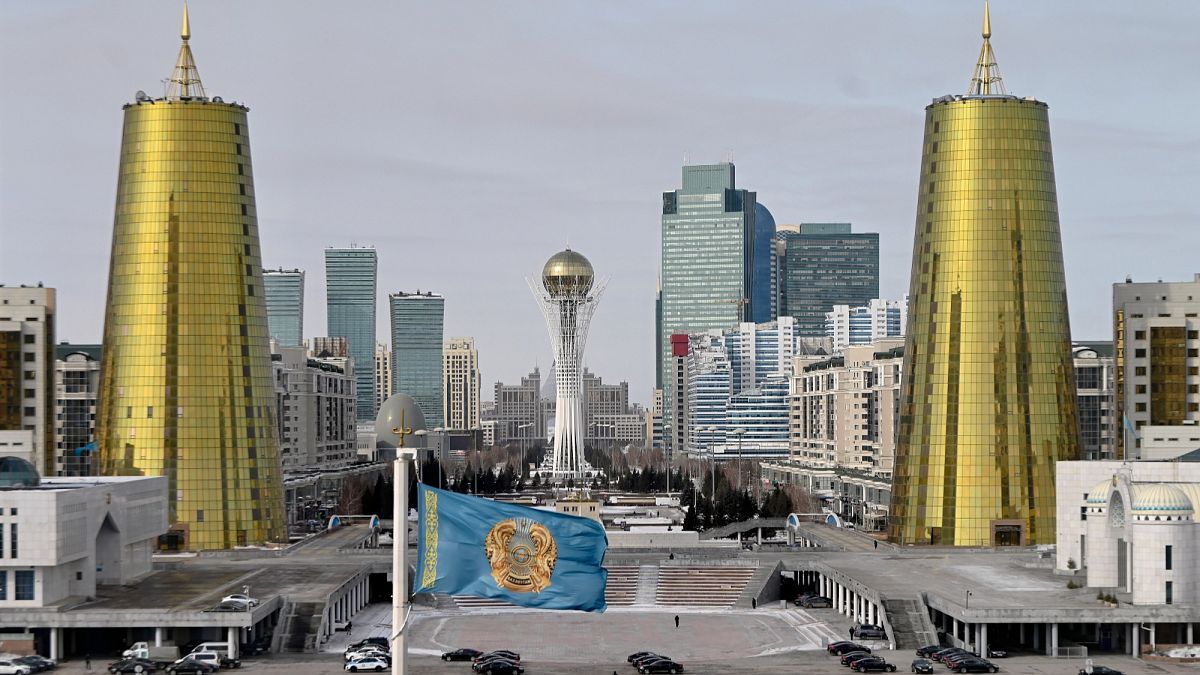

In a week filled with global socio-political developments, nations grapple with various internal and external challenges, emphasizing the ongoing need for calm and thoughtful solutions. From policy changes to diplomatic stances, these stories capture a snapshot of the world’s evolving landscape.
Kazakhstan’s Public Security Measures
In a recent move aimed at enhancing public security, Kazakhstan has enacted legislation banning the use of face coverings in public spaces. This decision, signed into law by the president, aligns with efforts to ensure safety and security within the nation. The measure, while focused on security, also invites discussions about individual freedoms and the balance between civic regulations and personal rights. As this law unfolds, its implications on daily life and personal liberties will be observed with interest by both national and international communities.
Northern Europe’s Gender-Inclusive Military Policies
In the realm of military inclusion, Denmark has taken a progressive step by broadening its compulsory conscription to include women. This change reflects a wider trend among Northern European nations aiming for greater gender equality within their defense forces. These policies are not only reshaping military landscapes but are also contributing to broader societal shifts towards inclusivity and equality. As these changes are implemented, they may serve as a model for other regions considering similar reforms.
France’s Initiatives Against Extremism
France has demonstrated its commitment to countering extremism, with recent actions taken against a potential threat within its borders. An 18-year-old man, allegedly associated with the “incel” movement, was apprehended for plotting attacks against women. This case marks the national anti-terrorist prosecutor’s first involvement with the incel ideology. France’s proactive measures highlight the importance of vigilance and the need for continuous efforts to combat hate-driven activities. The situation underscores the role of intelligence and law enforcement in ensuring public safety, while also addressing the socio-cultural roots of extremism.
Legal Protections for Haitian Immigrants in the United States
In the United States, a federal judge has intervened to protect the legal status of approximately 521,000 Haitian immigrants by blocking an attempt to end their temporary protected status (TPS). Originally slated for termination, the TPS extension provides critical support to these individuals, allowing them to remain in the US under specific humanitarian conditions. This ruling reflects ongoing judicial oversight in immigration matters and offers a sense of stability for affected communities. The case highlights the ongoing dialogue and legal scrutiny surrounding immigration policies in the US.
The Dalai Lama’s Stance on Tibetan Succession
In a significant spiritual and political declaration, the Dalai Lama affirmed the continuation of the Tibetan spiritual institution that bears his name. In a recent video statement, he underscored that his successor would be chosen according to Tibetan traditions rather than external influence, particularly from Beijing. This announcement arrives as he approaches his 90th birthday and reinforces the resilience of Tibetan cultural autonomy. This stance not only affects the spiritual realm but also carries deep political resonances, reaffirming a commitment to cultural and spiritual sovereignty amid international tensions.
Coroner’s Findings in Australia Highlight Police Challenges
In Australia, a Western Australian coroner released findings on a tragic incident involving the police shooting of an Aboriginal woman in Geraldton. The coroner noted that the officers involved lacked significant de-escalation efforts prior to the shooting, emphasizing a need for enhanced training and understanding between law enforcement and Aboriginal communities. The coroner’s report calls for meaningful change to improve relations and prevent similar occurrences. This situation sheds light on broader systemic issues within policing practices and the critical need for reform to foster trust and safety in communities.
As these diverse stories unfold, they each contribute to the tapestry of global socio-political dynamics. Each event provides insights into the complex interplay of law, culture, and human rights, illustrating a world continually striving for balance and progress. These narratives remind us of the importance of thoughtful dialogue, inclusive policies, and sustained commitment to human dignity.
Source: {link}
